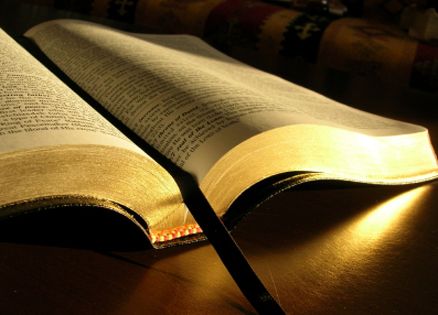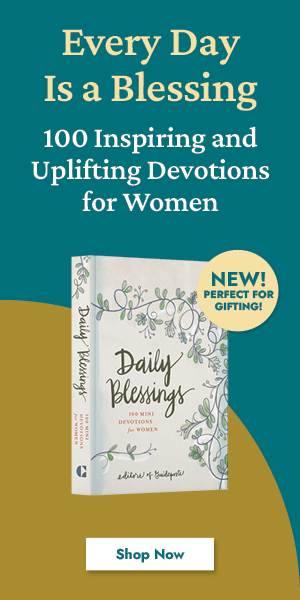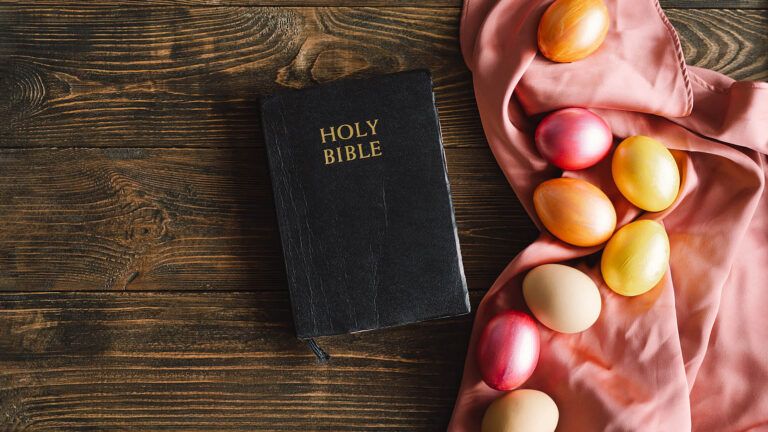Three years ago, I wrote a story for Guideposts about how a poem saved a forest.
I’m a professional poet. One of the best-known aspects of my work is what I call Poem Store. I set up a typewriter in a public place and write poems on request for whatever people choose to pay.
My Guideposts story, published in April 2016, was about an unlikely friendship with one of my Poem Store customers, a timber company executive named Neal Ewald. I’m a passionate environmentalist. Neal’s company, Green Diamond Resource Company, planned to log a pristine tract of old-growth redwood trees near the northern California town where I lived.
At the time we met, I had no idea who Neal was. All I knew was that he asked me to write a poem commemorating his wife, who had recently died of cancer. We got to talking and became friends despite our differences, and through our conversations and the work of local environmental groups, Neal decided to sell 1,000 acres of redwood forest to the county to be set aside as a preserve. Neal and I helped each other learn something about collaboration and openness to new perspectives.
Many Guideposts readers wrote me about my story. Some were moved by Neal’s devotion to his wife. Others wrote about their own love of nature. Above all, readers told me how much they love poetry, especially the way it connects them to God and helps unite people across divides of politics and belief.
I’ve always believed poetry is a conversation with God. It felt deeply affirming to learn readers feel the same way.
All my life I’ve read, written and been nurtured by poetry. I’ve also developed a simple but nourishing prayer practice. I use poetry in my prayers. Lately I’ve begun to think that, in many important ways, poems are prayers. Hearing from readers, talking to my Poem Store customers, watching the faces of children when I speak in schools, I see evidence every day of the spiritual power of words. My own story shows how a love of words—especially that way of arranging words we call poetry—can become a life-sustaining source of spiritual connection.
I was born in Royal Oak, Michigan, and spent much of my childhood in the Florida Keys. Wherever my family was, there were books and someone to read them to me. Camping in Canada, we shared stories in the tent. In the Keys, I spent lazy afternoons listening to fishermen’s tales on the docks.
I was always happier outside, and even before I knew how to form letters I carried notebooks with me and filled them with my own cryptic language. When I finally did learn to write, my first poem was about a fox I’d seen on a trail in the woods—a few lines about the fox’s stillness and its orange color.
I studied poetry at Florida State University. I didn’t grow up with a lot of organized religion, so I reached out toward God in a way that made sense to me. Every morning and evening, I spent time in silence. I began assembling what I thought of as an altar—bits of nature gathered on hikes or trips to the beach: shells, leaves, feathers, stones. I didn’t have a name for what I was doing. Eventually I realized I was praying.
I wanted the words of my prayers to match their subject. I began writing poems to recite as I sat. No matter where I was or where I lived, even if I had to do it in front of roommates or guests, I stuck to my prayer practice. Talking to God, I felt renewed.
After graduating with a degree in poetry, I decided not to follow the typical path of an academic poet. I wanted to travel, to see if I could combine my love of words and the outdoors into work that sustained me. I bicycled through Central and South America, studied farming on a road trip across the United States and worked as a gardener, learning to use compost and recycled rainwater to make the earth bloom. The work supported my writing and confirmed my commitment to environmentalism, to stewardship of the earth.
For a long time, I wasn’t sure how these various parts of my life—reading, writing, prayer, love of the earth—were connected. I knew they were connected; I felt it. But I didn’t have the precise words to express it.
Then I discovered Wendell Berry and Mary Oliver. Both are poets, what scholars call nature writers. Wendell Berry is a Christian and an environmental activist. Reading his work was a revelation. Here was a writer arguing boldly that caring for the earth and farming sustainably are ways to honor God. Berry’s poetry calls quiet attention to the landscape of his rural Kentucky home, finding God’s presence in the everyday fact of nature.
Mary Oliver was less outspoken about her spiritual beliefs but nevertheless showed me how writing poetry could be a sacred act. Oliver wrote poetry all her life. She grew up in a dysfunctional family near Cleveland, Ohio, and escaped turmoil at home by retreating to the woods, where she built huts of sticks and wrote.
Oliver’s poems usher readers into the forest, her green cathedral. In one called “Praying,” she encourages readers to keep prayer simple: “a few words together and don’t try to make them elaborate.” Prayer, she writes, is not “a contest but the doorway into thanks, and a silence in which another voice may speak.” Those words fit my thoughts about writing and prayer perfectly. Inviting that “other voice” to speak, the poem isn’t just about prayer. It is a prayer.
Wendell Berry and Mary Oliver showed me how poetry could become prayer in action. Their poems are not merely celebrations of beauty, but bold reminders of humanity’s responsibilities. The Earth is God’s gift to us, and it is our duty to take care of this planet as it cares for us.
Making a living as a writer is not easy. You might think being so frank about spirituality would make my path even harder. I find it’s the opposite. Because my goal is to share a spiritual connection and inspire readers to see the world and themselves in a new way, I write in plain language and devote a lot of time to sharing poems in public, whether in workshops or schools or at the Poem Store. I believe poems, like prayer, should be living and active. They are meant to be shared. They make things happen.
Mary Oliver and Wendell Berry certainly changed my life—and the lives of countless other readers. My Guideposts story about Neal Ewald was another example of poetry’s power. I see the same power at work when I set up my Poem Store. Customers share deep desires, personal pain and hopes for change and growth. The poems I write in response help them turn their private thoughts into a call to God, to whatever wisdom will help them find what they seek.
People often ask how they can weave more poetry into their life. My answer might sound counterintuitive: “Practice some sort of prayer every day. Read and write as often as possible. Go outside whenever you can.”
I mean what I say. Poetry is most effective when it comes from a place of strong vision and purpose. Vision and purpose come from connection to what is sacred. If you’re like me, you probably connect to God most easily in prayer, in reading books that inspire you and in the natural world.
I still sit at my altar every morning and evening. My prayer, my faith and my purpose remain fueled by language. I hope you too can find that connection to what matters most in the words you love.
For more inspiring stories, subscribe to Guideposts magazine.





